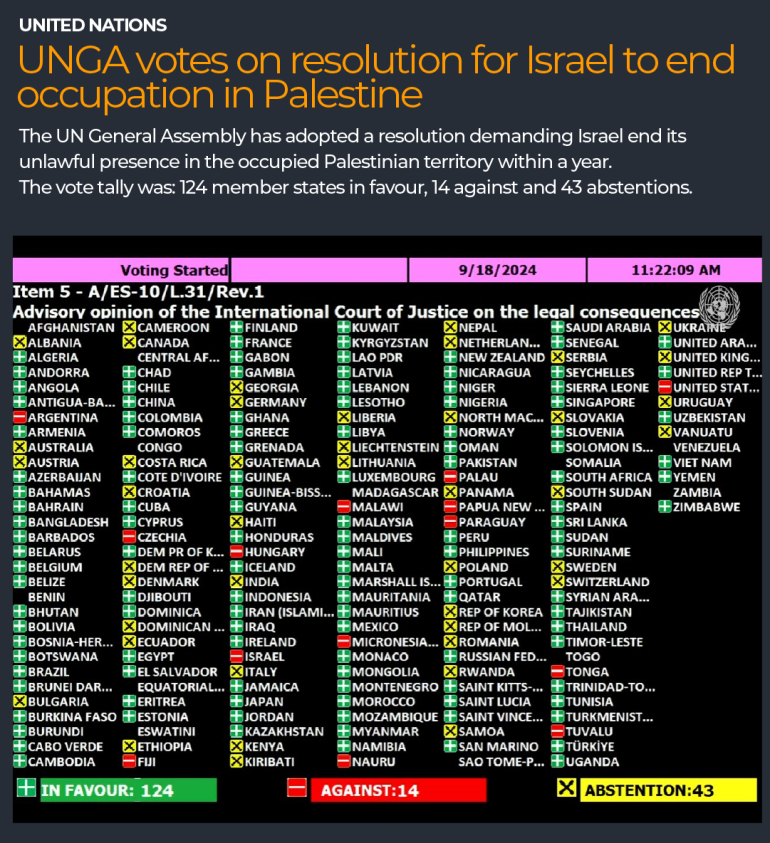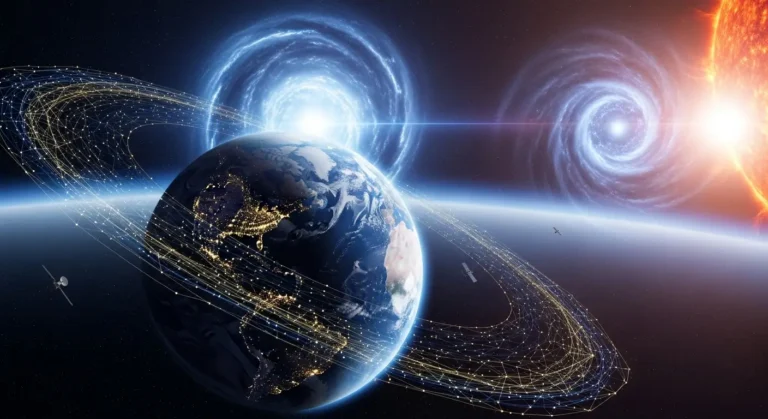NEW YORK – On Friday, Israeli Prime Minister Benjamin Netanyahu spoke to a mostly empty United Nations General Assembly Hall. His speech was full of defiance and drama. Dozens of delegations staged a mass walkout to show their strong disapproval of Israel's long and destructive war in Gaza.
Benjamin Netanyahu's eagerly scheduled 2025 UN speech swiftly emerged as a pivotal point in this year's General Debate. The Israeli leader faced a chamber that clearly showed the world's profound divisions over the conflict as he arrived in New York amid protests and under the shadow of an arrest warrant issued by the International Criminal Court (ICC) for alleged war crimes.
Symbolic Exodus
The protest was as quick as it was damning. Diplomats from almost all Arab and Muslim countries, along with counterparts from several African, Latin American, and a few European countries, rose in unison and filed out of the hall as Netanyahu stepped up to the famous green marble podium. A clear picture of Israel's extreme international isolation on the global scene was produced by the exodus, which left rows and rows of empty seats.
This act of diplomatic protest was the culmination of a week of mounting pressure. The UN General Assembly had earlier voted overwhelmingly to allow Palestinian President Mahmoud Abbas to speak remotely after the Trump administration denied him a visa. In his own address, Abbas insisted Palestinians would never leave their homeland, a message of resilience directly contradicting Israeli pressures. The week also saw ten more countries, including France, the U.K., and Canada, formally recognize a Palestinian state, bringing the total to 157 and further isolating the Israeli-U.S. position.
Netanyahu empty gesture in an empty room.
In a striking piece of 21st-century political theater, Netanyahu presented a novel tool of public diplomacy: a large QR code pinned to his lapel. He used it to command the room's attention, even in its emptiness.
"You see this large pin here. It’s a QR code," he declared, gesturing to his chest. "What I ask you to do is hold up your phone, zoom in, and you too will see why we fight and why we must win. It’s all in here."
Code reportedly links to a curated collection of materials detailing the October 7 Hamas-led attack, an attempt to re-anchor the global narrative to the event that precipitated the war. He also spoke directly to the remaining captives in Gaza, whose families have become an increasingly potent political force in Israel, criticizing his failure to secure a release deal. "We have not forgotten you, not even for a second," Netanyahu stated, adding that his speech was being broadcast via loudspeakers across the besieged and forcibly starved Gaza Strip, where over 40 Palestinians had been killed that day alone.
More than just a joke, QR codes are a strategic way to get around diplomatic and traditional media filters. By offering a state-approved account of the conflict's beginnings, Benjamin Netanyahu is creating a direct, unmediated connection with a worldwide audience. It is a contemporary propaganda tool designed to divert the focus of the October 7 discussion away from the massive humanitarian costs—and the accusations of genocide of the war that followed in Gaza.
Reshaping the Middle East Through Force
A significant portion of Netanyahu’s speech was dedicated to listing a series of Israeli military operations and assassinations, which he framed as successful efforts to reshape the Middle East in Israel's favor. He made little mention of civilian casualties as he celebrated these actions.
Claiming Credit for Regional Upheaval
Netanyahu began by hailing the Israeli operation that indiscriminately detonated thousands of pagers in Lebanon, targeting Hezbollah. "You remember those beepers, the pagers, we paged Hezbollah, and believe me, they got the message," he said with grim satisfaction. He also took credit for the recent fall of Syria’s Bashar al-Assad, ignoring the rebel offensive that actually toppled the government, and pointed to the successful Israeli killings of Hezbollah leader Hassan Nasrallah, top Hamas officials, Houthi leaders, and key Iranian scientists.
12-Day War on Iran
He specifically praised the "stunning military comeback" in the 12-day war against Iran in June, crediting Israeli and U.S. forces for crippling Iran's military and nuclear capabilities. "Our daring pilots neutralized Iran’s missile defenses and took control of the skies over Tehran," he claimed. "President Trump and I promised to prevent Iran from developing nuclear weapons, and we delivered on that promise." He concluded this section by urging the UN Security Council to reinstate snapback sanctions and eliminate Iran's stockpile of enriched uranium.
A Furious Rejection of Palestinian Statehood
The core political message of the Benjamin Netanyahu UN speech was his categorical rejection of a Palestinian state. He directed his ire at the Western nations that had recently joined the global consensus.
"You didn’t do something right. You did something wrong, horribly wrong," he charged, arguing the move would only spur further attacks on Jews and "innocent people everywhere." Using a familiar and emotionally charged comparison, he claimed Palestinian statehood would be a reward for the October 7 attacks.
"Giving the Palestinians a state one mile from Jerusalem after October 7 is like giving al-Qaeda a state one mile from New York City after September 11," Netanyahu argued.
The line drew visible applause from members of the U.S. delegation, Israel's staunchest defender and primary military backer. "This is sheer madness. It’s insane, and we won’t do it," he concluded.
Defiance and a Vow to "Finish the Job"
Throughout his 45-minute address, Netanyahu projected an image of unshakeable resolve, dismissing global condemnation and genocide charges as empty posturing and falsehoods. "Would a country committing genocide plead with the civilian population it is supposedly targeting to get out of harm’s way?" he asked, referencing displacement orders that have uprooted at least 90 percent of Gaza's population.
He then made a surprising claim of covert support. "I want to tell you a secret... behind closed doors, many of the leaders who publicly condemn us, privately thank us," he said, suggesting they value Israel's intelligence services. As he concluded, receiving a mix of applause and jeers, his final message was one of defiant victory. He promised the war would lead to a "dramatic extension" of the Abraham Accords and vowed to press on. "But, we’re not done yet."
Growing Recognition of Palestinian Statehood (157 Nations)

Recent recognitions by key Western nations mark a significant shift in global diplomacy surrounding the conflict.




